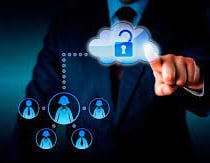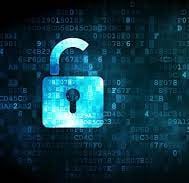Introduction
In the digital world, employees must have access to the right resources while ensuring that sensitive data remains protected. Proper authentication ensures that employees access only what they're authorized to, much like how a castle's guards are given keys to only specific doors. As companies grow and data becomes more valuable, having a solid authentication strategy becomes a must-have defense.
Abstract
Overview
Authentication is the gatekeeper of employee access to internal systems. It ensures that only the right people can access confidential data and tools. By controlling access, organizations can prevent unauthorized individuals from causing potential harm, whether internal or external.
Employee access control plays a crucial role in cybersecurity. Just like guards with specific keys to restricted rooms, authentication ensures employees can access only what they’re authorized to. This reduces risks and keeps sensitive information secure from potential threats. Let’s explore why safeguarding employee access is critical for every organization.


[Disclaimer: This blog post is for informational purposes only and should not be construed as legal or financial advice. Organizations should consult with legal counsel and regulatory authorities to ensure compliance with reporting requirements.]
Mandatory
Strong employee authentication methods are mandatory for protecting your organization’s most valuable assets. Without proper safeguards, employees could inadvertently—or maliciously—expose critical data.
Applicability
Employee access control applies to all industries and organizations, from small startups to multinational corporations. It’s essential for any business with internal systems and sensitive information.
Regulatory or Company Interest?
Regulatory frameworks like GDPR, HIPAA, and PCI-DSS require strict access control measures, making authentication systems a vital component for compliance.
Key Guidelines
Role-based access control (RBAC) ensures employees only access data essential to their job.
Multi-factor authentication (MFA) adds an extra layer of protection.
Regularly audit access permissions to ensure employees only have access to what they need.


Key Implications
Without proper access control, organizations risk data breaches, unauthorized transactions, and internal sabotage. Securing employee access minimizes these risks and ensures data integrity.
Countries with Adoption or Influence
Countries worldwide, especially those in the EU and US, have adopted strict access control policies due to increasing cybersecurity threats and data protection regulations.
International Frameworks Influenced
International standards like ISO 27001 and NIST highlight the importance of managing employee access through strong authentication methods to protect sensitive information.
Regional and Industry-Specific Frameworks
Healthcare (HIPAA) and finance (PCI-DSS) industries have specific regulations that require businesses to implement robust authentication practices to secure employee access to sensitive data.
Conclusion
Properly managing employee access to internal systems is essential for protecting sensitive company data. By using AI to enhance access control based on roles, behavior, and location, organizations can significantly strengthen their internal security posture.
Secure Your Digital Identity with SecureKnots
Contact us to learn more about our cybersecurity services and ensure your organization meets cybersecurity requirements.


How SecureKnots Can Help?
At SecureKnots, we specialize in GRC consulting, internal and external audits, and certifications to ensure your employee access control systems are secure and compliant. Our VAPT services can identify vulnerabilities in your authentication processes, while security awareness training educates employees on access best practices. Additionally, our ransomware attack simulations help test your access control mechanisms under real-world attack scenarios, ensuring you're always prepared.
This blog focuses on the importance of securing employee access to internal systems while showcasing how SecureKnots can help organizations strengthen their access controls. It is informative and engaging, highlighting the significance of strong authentication practices. Let me know if you need further adjustments!
Thank you for your attention! If you have any inquiries about cybersecurity requirements or need expert guidance, please don't hesitate to contact SecureKnots.
This should wrap up the blog and fulfill the promise made in the previous one!
Employee Access to Internal Systems
Within organizations, authentication ensures that employees can only access what they’re authorized to. Imagine a castle where every guard has a specific key for their assigned door. This way, sensitive data stays protected from wandering eyes and potential cyber threats.
WITH OUR SHORT BLOGS
STAY UP TO DATE
Copy Rights @ 2023 SecureKnots. All Rights Reserved.
CONTACT US
Contact@Secureknots.com
USA
+1-302-601-2346
+1-302-608-6708
INDIA
080-31658865
GET IN TOUCH
